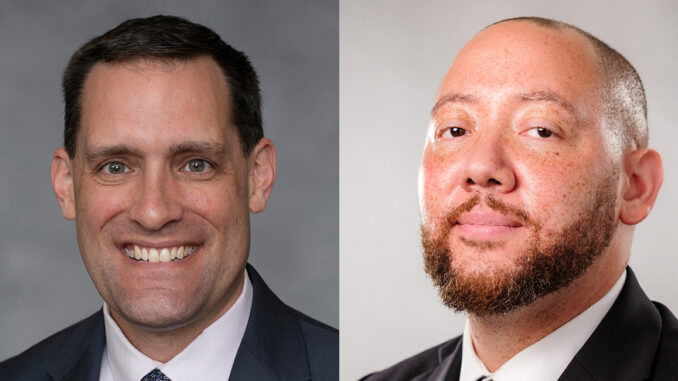
RALEIGH — An organization providing critical race theory and diversity, equity and inclusion training has received payments nearing half a million dollars since 2019 from the state’s largest K-12 district, Wake County Public Schools.
The training comes from The Equity Collaborative (TEC), a company founded and run by sitting North Carolina General Assembly Sen. Graig Meyer (D-Orange).
According to its website, TEC’s “Equity-Centered Professional Learning and Coaching” includes “Exploring Implicit Bias,” “Understanding Systemic Oppression and Privilege” and “Developing Your Approach for Anti-Racism.”
North State Journal reported earlier this year that TEQ had received payments from Wake County Public Schools (WCPSS) of more than $379,500 between 2019 and July 2024. With the addition of the most recent invoices for $64,000, the district has now paid TEQ a total of $440,500 for CRT and DEI-related training.
A WCPSS purchase order shows $64,000 in spending for multiple services from Oct. 25, 2024, through June 30, 2025. Only $16,000 of that total has been paid out so far.
Items included in the most recent purchase orders and contracts for TEC include:
• $8,000 for two “equity leadership seminars” for $4,000 each. The seminars are described as “equity facilitation seminar and equity coaching for growth” for “Cohort 1 and 2 Principal convenings.”
• $16,000 for two sessions of “school team convenings.”
• $16,000 for two virtual “school team convening” sessions at a rate of $8,000 each.
• $24,000 for 24 coaching sessions at a rate of $1,000 each.
The “equity coaches” listed in the contract documents are Meyer, Bettina Umstead and Jessica Gammell. Umstead joined TEC in 2020 and is the chair of the Durham Public Schools Board of Education. Gammell’s LinkedIn profile says she has worked in equity coaching for almost a decade and lives in Oakland, California.
TEC’s website says its equity coaching goal is to “help organizations develop their own capacity to create educational equity and social justice by addressing bias and oppression.”
The purchase order lists the Office of Equity Affairs (OEA) as the originating division. Cecelia Green, an OEA staff member, and Assistant Superintendent Will Chavis, who leads the OEA, are specifically named.
The justification for the spending on the documents is to “expand support” for two OEA programs: a Roadmap to Equity and Equity Development Pathways. Also included in the records is a proposal and project analysis document from TEC to Chavis dated May 15, 2024.
The analysis says the proposal “expands the project into a second year” when “a group of ten additional schools would join the cohort.” It goes on to say, “Together, all of the schools in the cohort will learn from each other and develop equity capacity for the entire district.”
The cohort expansion mentioned includes a jump from 10 schools involved in “Developing School Exemplars for Advancing Equitable Practices.”
The “Equity Leadership Development Pathways Executive Summary“ document provided to North State Journal by WCPSS lists the topics to be covered, including titles such as “Civil Rights, Historical Context and Oppression,” “Deeper work on bias,” and “Dynamics of Power and Privilege.”
North State Journal first reported on TEC more than three years ago after receiving information about a teacher professional development course called “Intro to Critical Race Theory“ being offered by the district.
The OEA has spearheaded all critical race theory efforts and equity teacher training in the district.
OEA was established in 2014-15, and according to documents obtained by North State Journal, the division has spent at least $12.135 million on or by itself. In 2023-24, the OEA spent more than $1.8 million on salaries, travel, workshops and other expenses.
WCPSS currently has a budget shortfall of around $3.7 million. The district’s operating budget is $2.196 billion. Rising costs, such as staff pay and benefits, including the restoration of master’s pay for some teachers, are the main drivers of the shortfall.
During a Dec. 3 WCPSS board meeting, the district’s finance team highlighted the top factors contributing to this financial strain, including increased labor and food costs for school nutrition programs ($3 million), higher utility expenses ($2.5 million) and background checks ($658,000).
WCPSS also raised worker pay from $11.58 to $17.75/hour.
The board was also told that increasing charter enrollment was $1.3 million; however, these are pass-through funds due to those schools. Part of the strain related to those funds is the changes to the funding model made by lawmakers this school year, which changed from a model based on projected enrollment to that of a district’s prior year’s enrollment figures.



